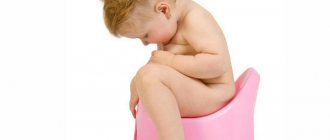In our deeply tolerant society, where gender boundaries are almost blurred, and any attempt to “put a stereotype” on anyone is suppressed by public censure, it is already quite difficult to talk about the individual differences between men and women. However, when it comes to the manifestation of physiological characteristics in people during puberty, it is impossible to ignore the individual approach, depending on gender. In this article we will discuss the process of growing up, puberty in boys and all the subtleties associated with puberty.
Age of puberty, when does puberty begin, at what age does it start?
Puberty occurs between the ages of 12 and 16 years. Sarklinik believes that the timing of puberty in certain groups and in individual boys and girls, boys, young men and girls varies significantly. What are the signs of puberty in boys ? Boys develop a mustache, a beard, an enlarged Adam's apple (Adam's apple), an enlarged penis and testicles, hair in the armpit and pubic area, and a rougher voice. What are the signs of puberty in girls ?
In girls, the mammary glands enlarge (mammary glands, breasts, boobs become fuller, rounder, larger), the shape of the pelvis (pelvic bones) changes, the external genitalia increase (labia majora and minora, clitoris), the skin of the labia darkens, hair appears under the armpits and on the pubis, pubic hair grows in a triangle, there is a sharp jump in growth.
Puberty of girls, girls, sex formula, female puberty
What is the age of puberty for girls ? Puberty in girls most often occurs between the ages of 12 and 16 years. When assessing the puberty of girls, the following are taken into account: P – pubic hair growth, pubic area; Ax – armpit hair growth; Ma – mammary glands, Me – menstruation (menstruation). At different ages, the sex formula changes.
The sexual formula P0 Ax0 Ma1 is observed between the ages of 8.6 and 12.0 years.
The sexual formula P1 Ax0-1 Ma1 is observed between the ages of 9.8 and 13.4 years.
The sexual formula P2 Ax2 Ma2 is observed between the ages of 10.2 and 13.5 years.
The sexual formula P3 Ax2-3 Ma3 is observed between the ages of 11.0 and 14.3 years.
The sex formula P2 Ax3-4 Ma3 Me+ is observed between the ages of 11.1 and 14.4 years.
The sex formula P2 Ax2 Ma3-4 Me+ is observed between the ages of 12.0 and 15.5 years.
The sex formula P3Ax2Ma3-4Me+ is observed between the ages of 12.8 and 15.7 years.
The sex formula P3 Ax3 Ma3-4 Me+ is observed between the ages of 13.5 and 16.9 years.
0 is the absence of a trait, 3 - 4 is maximum sexual maturity. During puberty, girls begin to develop mature eggs. There is a change in behavior and psyche and attraction to guys.
Do you need a specialist while growing up?
All adolescents go through puberty, and in most cases it ends with normal adulthood. But there are still circumstances when a boy should be shown to a doctor.
- Your son is worried about pain in the testicles or penis - be sure to visit a urologist with him.
- Physical changes do not occur, although the teenager has already passed the average age of puberty - consultation not only with a urologist, but also with an endocrinologist will be required.
- If signs of an eating disorder appear, the first thing to do is find out the cause of this problem. A nutritionist, gastroenterologist and psychologist can help you.
- There are suspicions that the child is suffering from severe depression - at a minimum, the help of a school psychologist is needed. He will already give all the necessary recommendations.
- If you can’t cope with acne at home, you need to consult a dermatologist. Be sure to make sure your son doesn't pick off his acne and get an infection that way.
- Hygiene products cannot cope with the strong odor of sweat - contact a nutritionist to help you adjust your diet (perhaps you should exclude fatty and spicy foods).
Talk to your children and support them at this “difficult age”, and also try to be extremely competent in such important issues related to puberty, or do not delay contacting specialists. Be attentive and caring - this is the only way you can get through this special time painlessly.
Stages of puberty, stages
What are the stages of puberty ? Experts distinguish 5 stages of puberty: stage 1, stage 2, stage 3, stage 4, stage 5. Stage 1 – childhood, prepubertal period. Stage 2 – the beginning of adolescence, the beginning of puberty. Stage 3 - the beginning of adolescence, the first period of puberty, stage 4 - continuation of adolescence, the second period of puberty, stage 5 - the onset of sexual biological maturity, the end of the puberty period.
What is early, premature puberty?
Early puberty , or precocious puberty, is associated with the appearance of secondary sexual characteristics in girls before age 8 and in boys before age 10. Puberty is characterized by hormonal changes and increased function of the gonads. Puberty completes the formation of secondary sexual characteristics, menstruation (menstruation, menstruation) appears in girls, and wet dreams (involuntary ejaculation) appear in boys. There is also a rapid increase in body length and weight (height in cm and weight in kg) and subcutaneous fat layer increase, especially in girls. By the end of the maturation period, short stature or excessively high growth are clearly defined. During puberty, acceleration processes become more obvious.
A little about Sunnet
Let's look from a modern perspective at the Muslim and Jewish ritual of circumcision of the foreskin of boys. Circumcision is performed by a surgeon or a specially trained clergyman at 3, 5, 7 years of age (in odd-numbered years). The delicate mucous membrane of the head becomes coarser due to friction against the underwear. This is not only hygienic, since smegma has nowhere to accumulate.
A hardened head prolongs sexual intercourse and prevents premature ejaculation.
It has also been noted that after circumcision, susceptibility to AIDS is reduced by 2 times, viral diseases, including human papillomas, are not transmitted. It is not difficult to raise a boy into a healthy man. Be attentive to all changes in his physical and mental state, especially during the period of maturation, jointly engage in sports, tourism, lead a healthy lifestyle, avoiding nicotine and alcohol, and eating a healthy and balanced diet. It is important to instill in a boy a respectful attitude towards women. Emerging problems must be solved together with a urologist, andrologist and psychologist.
Puberty disorders
The increasing motor and neuropsychic activity of adolescents leads to increased tension in the metabolism, endocrine system, and nervous system. The processes of general excitation intensify, the stabilization of conditioned reflexes becomes more difficult, the blood supply to the brain somewhat deteriorates, and therefore fatigue and phase states develop more easily. Disorders of the nervous system, psychoneuroses, neurasthenia, depression, obsessive neurosis, and vegetative-vascular dystonia are often observed. The lability of the function of the autonomic nervous system increases, frequent stabbing pains in the heart area, palpitations, and cardioneurosis. Psychopathic manifestations are possible. Pediatricians, therapists, endocrinologists, reflexologists, and reflexologists often call the period of puberty transitional, since at the beginning of it children have not yet become adults, but they no longer feel like children. This period is especially difficult psychologically. The psyche of a teenager is very vulnerable. To prevent pathological deviations in the mental and physical development of a teenager, preventive visits to a psychologist are important. Disorders of puberty may be observed (lag, delay, slowdown, early, premature development).
From a psychological point of view
This is where there really are a lot of pitfalls, nuances and difficulties, and that is in the mental state of the child. Many changes are taking place, often quite negative, but not critical.
When puberty begins in boys, it should be remembered that the psyche of adolescents is extremely unstable, and emotional balance is fragile. At this time, they become very vulnerable and cannot adequately perceive criticism addressed to them: either they begin to scream and get angry, or they withdraw even deeper into themselves, engaging in self-flagellation, internally “eating themselves.” The teenager strives for independence, defends his adulthood and independence. That is why the reaction of loved ones and relatives, especially parents, is important to him. It is vital for a young man to see that you perceive him as an adult man, allow him to make decisions on his own, do not command or patronize him.
Photo source: shutterstock.com
For example, your son said that he is going for a walk with friends. You shouldn’t call him every 15 minutes and ask how he’s doing, if everything is okay and if he remembers to be home at the specified time. With such “concern” you will make him a laughing stock in front of his friends, from which your child may become furious and out of spite return late and not completely sober (again, to spite you) or sober and on time, but start making trouble. Whatever your parental impulse, restrain yourself and ask to warn you before the walk if it is delayed. This will let him know that you trust him, respect him and believe that he is old enough to control himself.
It is equally important for teenagers to reveal themselves as individuals. Personal space is important to them - their own room or at least their own corner, where no one will intrude without their knowledge. Many parents - with the best, in their opinion, intentions - strive for total control of the child, look through his correspondence on social networks and on the phone, and forbid him to communicate with certain “suspicious” individuals, in their opinion. Thus, not only do they violate his rights and introduce a whole bunch of complexes and problems into adult life, but they also undermine the teenager’s confidence in himself and complicate his life, giving even more reasons for conflicts.
Put yourself in his shoes. You probably wouldn’t be pleased if someone you trust got into your phone or correspondence and found something, in the opinion of this “scout,” strange and frightening. And then, when you returned from work, this person would be taken aback by the phrase: “You write in correspondence with this and this that they don’t understand you at home and in general you want to run away. I wonder what we did to you? Well, come on, what did we do wrong? Or something like that. How would you feel?
Another characteristic of teenagers is isolation, gloominess, and constant depression. This is due to several factors. Firstly, adolescents' self-esteem is quite changeable, usually towards low. They are not fully aware of the changes in their body, and they think that they look bad. Guys' self-esteem may decrease due to problems establishing relationships with girls. Secondly, you need to remember about such a concept as “youthful maximalism.” This means that teenagers divide the world into what is right and what is foreign, into what they adore and what they hate. And since communication is the main thing at this age, it is important for him to live up to the people whom he has elevated to the rank of ideal. And the slightest discrepancy with one group or another can greatly upset a teenager. Thirdly, increased fatigue from changes in your body. Often parents call this laziness and push their youngsters even harder to study.
There is one more important thing to understand about isolation. You should not expect frankness from a child if you did not establish trusting relationships before puberty and adhered to an authoritarian or oppressive system of upbringing. It will be easier for him to share his worries with friends, but not with the person who is easier to yell at him or punish him. During this period, you need to try with all your might to show him that you are on his side, choose your words very carefully. Many attribute isolation to a sure sign of drug addiction, which is far from true. If your son doesn't want to tell you about school or doesn't want to talk at all, this doesn't mean he's a drug addict and shooting up behind garages with friends. This means that he is not interested in this topic or he is worried about something, but is afraid to tell you. Afraid of judgment or ridicule from you.
Another stumbling block between generations is computer games. In everyday life, there is a misconception that if a boy plays “shooting games”, then he will definitely grow up to be a killer, that his eyesight will deteriorate from long hours at the computer, and that the fact that he spends all his free time at the computer indicates gambling addiction and urgently needs to be run to a psychiatrist. Now, that's not true. By playing “aggressive” games, a person relieves stress accumulated during the day, which has been proven by scientists. They found no connection between computer games and human behavior. Therefore, there is no need to shift responsibility for the child’s aggression from yourself to games. Aggression is another sign of puberty. This is how boys try to show their masculinity. Another passion for games may be a sign of a child’s loneliness, the absence of any social circle other than this.
Therefore, if in response to your speeches, which sound to him like “blah blah blah,” he says: “Well, now! I'll get to saving! I’ll kill the boss and that’s it!” – just ask how much time he needs, and tell him that after this time you expect him to leave the game. As soon as the agreed time is up, do not rush into his room. Wait at least 5 minutes and then check. In most cases, this method is effective, and the teenager obediently leaves the game. This can become your common topic of conversation. You can ask him what he plays, ask him what game he wants to buy, and if it's inexpensive, give him pocket money for it.
In general, when your son enters adolescence, you need to be as interested in his life as possible. But not for the purpose of manipulating him. And show that he is important to you for who he is, and his interests too. Listen to his music with him, try to find songs of a similar genre and share with him. Talk about your experiences at his age, don’t be afraid to talk about the actions for which you are ashamed, or the mistakes you made. It is important to be on the same page with your teenager, because he really needs protection from constant changes and your support, no matter how much he denies it.
Photo source: shutterstock.com
Denial of everything old is another trait of adolescence, called negativism. This is his way of saying goodbye to childhood, showing himself that he is already an adult. If it’s something uncritical (favorite color, movie, dish, song), then don’t say: “But you liked it so much!” Let's try again!". Support him in the changes, help him build a new one in place of the old. It should be remembered that teenagers are not very good at planning, because they live one day at a time. Their hobbies can vary greatly, depending on how much others, and especially their parents, approve of them. Therefore, if you see that your teenager is trying to write poetry, draw, play the guitar, support him in this. Yes, he may not succeed right away, but with your support he will be able to develop his talents. Again, there will be less sitting at the computer if it bothers you that much.
A little more about fatigue. It has been noticed that in adolescence the brain works somewhat worse, and absent-mindedness is often observed. As a rule, in grades 6–8, a child “slides” academically. If you notice this with your son, ask him what he struggles with and what subjects he finds easier. Help him with his homework and don't scold him for bad grades if you see that he is trying his best but is struggling in a subject. Understand that the main thing in school is not grades, but the knowledge that your child will receive. And let him know that you don’t love him for his academic success.
But in fact, you need to remember that all children are individual and that some signs, especially psychological ones, may simply not appear. Especially if you and your child have established good friendships. Remember that no matter how “cactus” your child is, he still needs your support and love, and not total control, reproaches for poor performance and condemnation.
Sex life of teenagers
Often boys and girls, boys and girls, teenagers are interested in such issues as puberty, sex life, wet dreams, genitals, labia majora, labia minora, genitals, erection, penis, vagina, clitoris, virgin hymen, sexual maturity, sexual intercourse. Teenagers are also interested in the following questions. What is the male reproductive organ? Which gender is more interesting? What is nudism? Who are naturists, nudist girls, puberty name? How long does the process of puberty last? What is the norm of sexual development, standards? Why does late puberty and impotence occur in children? What are the dangers of frigidity, prostatitis, early ejaculation, vaginismus? How to achieve orgasm for a girl? Why isn't the dick worth it? Why is my penis crooked? How to prolong sex? Why is the vagina dry? Why is the clitoris swollen after sex? Why is the vagina narrow? What should you do if it drips from your penis and burns in your vagina?
Dear teenagers, if you have any of the above questions, you can consult a doctor on the topics that interest you absolutely free on the sarclinic website and get up-to-date answers. The site and the doctor are waiting for your questions.
Sources
- Izawa M., Hisamatsu E., Yoshino K., Yoshida M., Sato T., Narumi S., Hasegawa T., Hamajima T. Complete androgen insensitivity syndrome with accelerated onset of puberty due to a Sertoli cell tumor. // Clin Pediatr Endocrinol - 2021 - Vol30 - N2 - p.99-104; PMID:33867670
- Selvaraj A., Prasad HK., Narayanasamy K., Thiagarajan A., Krishnamoorthy N. Clinical Profile of Adolescents With Delayed Puberty. // Indian Pediatr - 2021 - Vol - NNULL - p.; PMID:33864448
- Ivell R., Anand-Ivell R. The Physiology of Reproduction - Quo vadis? // Front Physiol - 2021 - Vol12 - NNULL - p.650550; PMID:33859571
- Torres PJ., Luque EM., Di Giorgio NP., Ramírez ND., Ponzio MF., Cantarelli V., Carlini VP., Lux-Lantos V., Martini AC. Fetal Programming Effects of a Mild Food Restriction During Pregnancy in Mice: How Does It Compare to Intragestational Ghrelin Administration? // Reprod Sci - 2021 - Vol - NNULL - p.; PMID:33856666
- Štichhauer R., Šafus A., Neumann D., Novák I., Skutilová V., Laco J. Ovotesticular Disorder of Sexual Development and Non-Palpable Testis. // Acta Medica (Hradec Kralove) - 2021 - Vol64 - N1 - p.42-45; PMID:33855958
- Deardorff J., Reeves JW., Hyland C., Tilles S., Rauch S., Kogut K., Greenspan LC., Shirtcliff E., Lustig RH., Eskenazi B., Harley K. Childhood Overweight and Obesity and Pubertal Onset Among Mexican American Boys and Girls in the CHAMACOS Longitudinal Study. // Am J Epidemiol - 2021 - Vol - NNULL - p.; PMID:33831178
- Singh P., Samaddar S., Parakh N., Chandra J., Seth A. Pubertal Development and its Determinants in Adolescents With Transfusion-Dependent Thalassemia. // Indian Pediatr - 2021 - Vol - NNULL - p.; PMID:33772533
- Gulseth E., Urdal A., Andersen MH., Diseth T., Aksnes G., Emblem R., Wæhre A. High satisfaction on genital self-perception and sexual function in healthy Norwegian male adolescents. // J Pediatr Urol - 2021 - Vol - NNULL - p.; PMID:33750647
- Nassau DE., Best JC., Cohen J., Gonzalez DC., Alam A., Ramasamy R. Androgenization in Klinefelter syndrome: Clinical spectrum from infancy through young adulthood. // J Pediatr Urol - 2021 - Vol - NNULL - p.; PMID:33726973
- Wang J., Zhan S., Yuan J., Ullah R., Dong G., Wu W., Huang K., Fu J. The incidence of brain lesions in central precocious puberty: The main cause for Chinese boys was idiopathic. // Clin Endocrinol (Oxf) - 2021 - Vol - NNULL - p.; PMID:33721341
Puberty: treatment, how to treat puberty disorders
Sarklinik provides treatment for disorders of puberty in Saratov , treatment of disorders of puberty in Russia, treatment of retardation, treatment of delayed puberty, treatment of premature puberty, treatment of early puberty, treatment of sexual dysfunction, treatment of late delayed puberty in boys and girls, guys and girls, children and teenagers. At the first consultation, the doctor will tell you how to treat puberty disorders and how to cure delayed puberty.
There are contraindications. Specialist consultation is required. Make an appointment and consultation.
Text: ® SARCLINIC | Sarclinic.com \ Sarlinic.ru Photo: (©) Zastavkin | Dreamstime.com \ Dreamstock.ru The guy and girl shown in the photo are models, do not suffer from the diseases described and/or all coincidences are excluded.
Related posts:
Why does a child feel bad, doesn’t speak much, doesn’t speak, how to teach a child to speak, talk
If a patient with Tourette syndrome does not want to be treated, what to do?
ZRR, ZPR, ZPRR, ZPMR in children, treatment in Saratov, in Russia, delay in speech, psycho-speech, psycho-speech development of a child
Speech areas of the cerebral cortex: motor, sensory, Wernicke's center, Broca's center, treatment
A child stains his panties with feces, what to do if he smears it in his panties, the child’s panties are dirty




